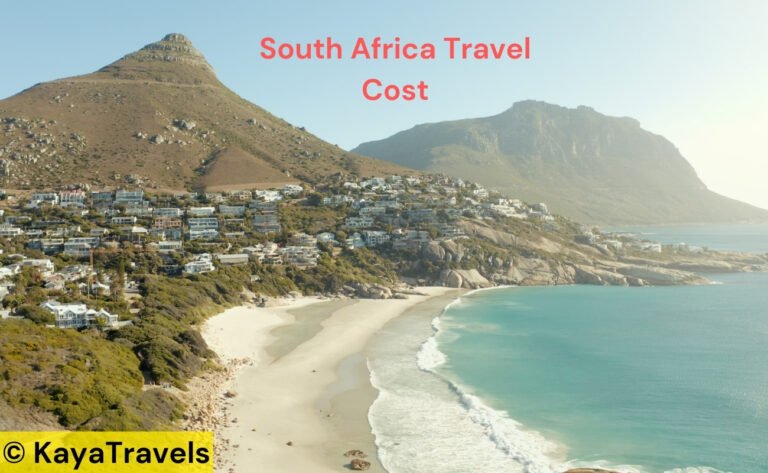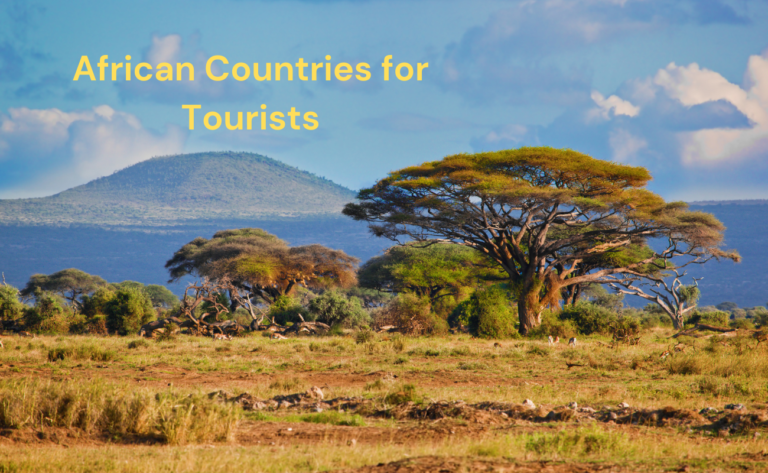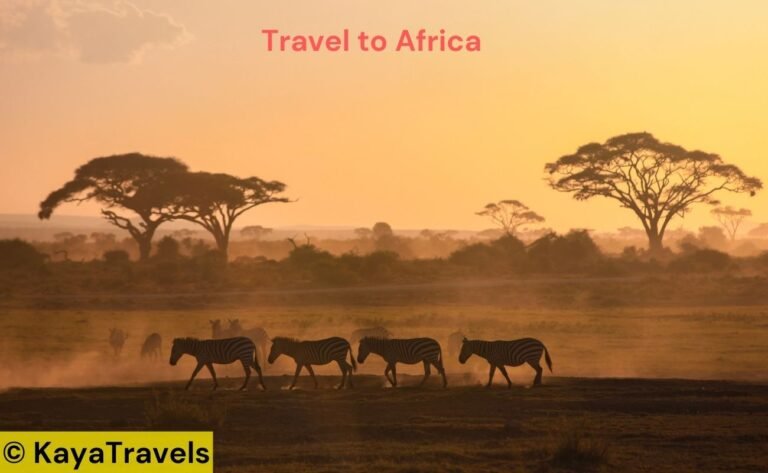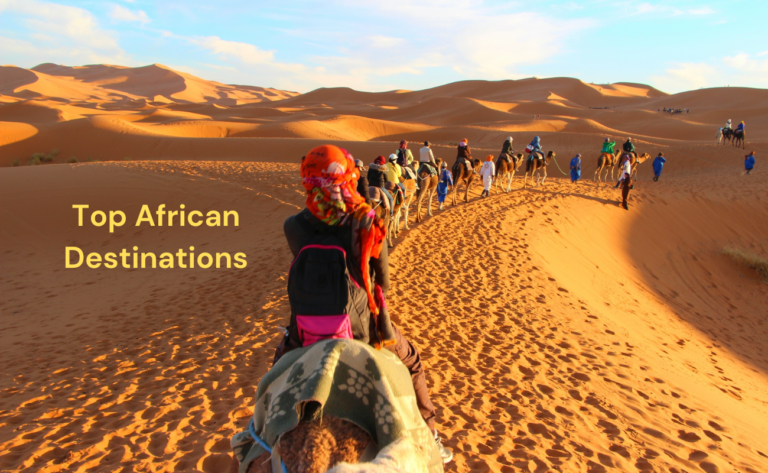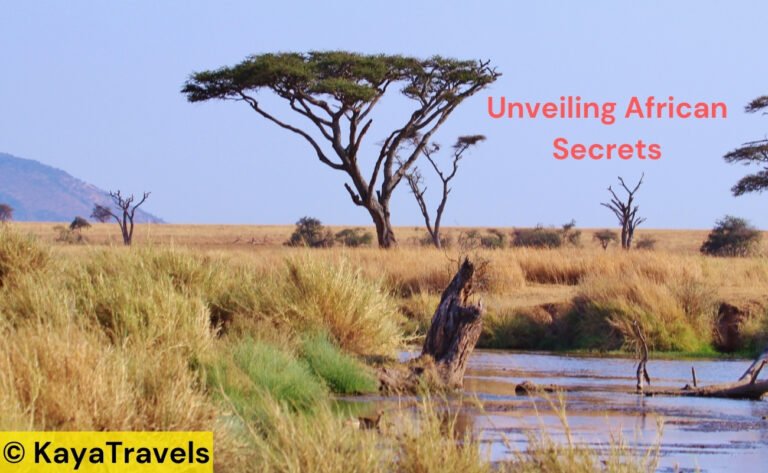Traveling to Africa doesn’t have to come with a hefty price tag. In fact, there are ways to experience the vast and vibrant continent for free, from exploring the safari wilderness to absorbing the rich local cultures. Here are some key insights on how you can make this journey without touching your savings.
How to Travel to Africa for Free
Lets Discuss them:
1. Scholarships and Grants
Several organizations offer scholarships and grants specifically for travel to Africa. These are usually aimed at students, researchers, or those with a project that benefits the local communities. It’s essential to research extensively and apply early due to the high competition for such opportunities.
2. Volunteer Programs
Some volunteer programs cover your expenses in exchange for your work. This could be in areas like teaching, conservation, or health care.
While these programs may not require you to pay, you need to carefully consider the terms and ensure they align with your values and what you want to get out of the experience. Always check for reputable organizations to avoid scams.
By considering these avenues, your dream trip to Africa could be closer than you think. Detailed planning and research are key to making it a reality without financial strain.
Understanding African Travel
Before you embark on your adventure to Africa, knowing the specifics of your destination, cultural nuances, and safety measures enhances your journey.
When planning a trip to Africa
- Identify your interests: Safari, historical sites, beaches, etc.
- Check visa requirements: Different countries have different rules.
- Understand the climate: Know the best time to visit each country.
Africa spans several climates, so research is crucial for a pleasant trip. The continent is vast. Each region has unique experiences, from the Sahara Desert’s expanse to the Serengeti’s wildlife. To choose where to go, consider your preferences, the weather patterns, and local travel options for a smooth journey.
Cultural Insights and Food
Understanding local customs and cuisine is essential:
- Learn basic greetings: Show respect and friendliness.
- Food: Be open to trying new dishes like Jollof Rice or Tagines.
Africa’s rich cultural tapestry is woven with vibrant traditions and delicious food. Whether it’s the rhythm of West African drumming or the aromatic spices of Moroccan cuisine, immersing yourself in these aspects can make your travel more fulfilling. Always show respect by learning about the customs and trying local dishes.
Travel Insurance and Safety Precautions
Stay safe by being proactive:
- Get travel insurance that covers medical and trip cancellations.
- Common sense goes a long way: Heed travel advisories and local advice.
With diverse terrain and societal norms, Africa requires travelers to take safety seriously. Travel insurance offers peace of mind while exercising common sense and staying informed about the local security situation, which ensures a safer travel experience.
Remember, your safety is paramount wherever your African travels take you.
Financials and Budgeting
When planning to travel to Africa for free, understanding your financials and budgeting smartly are key factors to a successful adventure. Let’s explore free travel opportunities and how to best manage your money abroad.
Free Travel Opportunities
Free travel might seem like a dream, but with the right strategies, it can become a reality. Several organizations and programs offer free or sponsored travel to those willing to volunteer, teach, or work in various capacities.
- Volunteering: Look for NGOs or social enterprises that cover accommodation, local travel, and sometimes even flights for volunteers. For example, the Peace Corps in the USA provides such benefits while you contribute to meaningful projects in Africa.
- Scholarships and Grants: Research scholarships that offer study trips to Africa or grants designed for cultural exchange programs. These can include airfare and living expenses.
- Work Exchanges: Platforms like WWOOF and HelpX connect travelers with hosts who need help with their business, typically in exchange for room and board.
- Competitions and Contests: Keep an eye out for travel contests that offer trips to Africa as prizes. Make sure to read the fine print and understand the terms and conditions.
Managing Money Abroad
Once you find a way to get to Africa for free, managing your finances during your stay is crucial.
- Currency and Exchange Rates: Before you go, learn about the local currency and current exchange rates. Apps like XE Currency can help you stay updated.
- Cash and ATMs: Always have some local cash on you. Not everywhere will accept credit cards, and ATMs might not be found in remote areas. Withdraw enough cash in urban centers to cover your expenses and avoid multiple withdrawal fees.
- Credit Cards: If you plan to use a credit card, inform your bank of your travel plans to avoid fraud alerts blocking your card. Choose a card that doesn’t charge foreign transaction fees to keep expenses affordable.
- Budget Tracking: Use a simple spreadsheet to track your expenses. List things like transportation, food, and activities to ensure you stay on budget without any surprises.
By tapping into free travel opportunities and keeping a keen eye on your finances while abroad, you can make your African adventure not only enriching but also economically savvy.
Logistics and Transportation
Understanding logistics and transportation is crucial for a smooth and cost-effective journey when planning a trip to Africa.
Visas and Documentation
Before setting foot on a plane or hopping on a bus, confirm your visa and passport requirements. Different African countries have different policies, with some offering visas on arrival and others needing an application before traveling. For instance:
- Visa on arrival: Countries like Kenya and Tanzania.
- E-visa: Nations like Rwanda and Zimbabwe.
- Pre-arranged visa: Places like Nigeria and Ghana.
Make a checklist for your documentation to avoid last-minute hurdles:
- Valid passport with 6+ months before expiration.
- Required visas for your destination(s).
- Additional documents if transiting through multiple countries.
Modes of Transport
Once your documents are in order, consider your options for moving around Africa. They vary widely in cost, comfort, and convenience.
- Flights: If your itinerary includes multiple countries or vast distances, air travel might be the most efficient, though not always the cheapest. Look for budget airlines like Fastjet for intercountry trips.
- Public transport: Buses and minibusses are common for intra-city and intercity travel. They’re affordable but can be crowded and less comfortable.
For greater flexibility, renting a car might be ideal if you’re comfortable with local driving conditions. However, for free travel, leverage any loyalty programs you’re a part of for potential rewards flights or train journeys.
Consider using ride-sharing apps like Uber or local taxis in urban areas, balancing cost with convenience.
Remember, keeping your travel tips handy and being aware of your options can make your African adventure both memorable and hassle-free.
Health and Vaccinations
When you’re planning your free journey to Africa, staying healthy is crucial. Making sure you have the right vaccinations can protect you from serious diseases and help you enjoy your adventure without worry.
Required Immunizations
Before heading to Africa, you must ensure that your routine vaccinations are up-to-date, including:
- Measles, Mumps, Rubella (MMR)
- Polio
- Hepatitis A & B
- Flu shot
Additionally, some specific immunizations are highly recommended or required for certain African countries:
- Yellow Fever: Some African countries require a Yellow Fever vaccination certificate for entry.
- Typhoid: Often contracted through contaminated food or water.
- Rabies: Especially if you’ll be in close contact with wildlife.
Check the CDC’s destination pages for particular requirements based on your travel destinations in Africa.
Staying Healthy While Traveling
While traveling in Africa, you’ll need to take precautions to stay healthy:
- Malaria: It is prevalent in many parts of Africa. You should take antimalarial drugs and use insect repellent to protect yourself.
- Medical Evacuation Insurance: Consider getting this as healthcare facilities may be limited, especially in remote areas.
Eat and drink safely: Avoid tap water, ice, and raw foods. Opt for bottled water and food that is cooked and served hot.
To prepare for your trip, visit your healthcare provider at least four to six weeks in advance to ensure you have all the necessary vaccinations. They can also provide personalized advice based on your health history and the places you plan to visit.
Experience and Activities
To explore Africa for free, you need to focus on experiences and activities that provide deep connections with nature and culture without breaking the bank.
Safari and Wildlife Adventures
- Serengeti and Kruger National Park: These iconic destinations in Tanzania and South Africa, respectively, offer opportunities to see the Big Five – lion, elephant, buffalo, leopard, and rhinoceros.
- Volunteer: Engage in work exchange programs that allow you to join safaris as part of conservation efforts, especially in countries like Kenya, Botswana, and Zimbabwe.
Cultural and Historic Exploration
- Living Museums: Visit cultural heritage sites like the Maasai villages in Kenya or the Himba in Namibia to learn traditional ways of life.
- Historical Sites: Explore places rich in history, such as the Great Zimbabwe ruins or Kigali Genocide Memorial in Rwanda.
Explore the lush landscapes of Mozambique, the mountains of Lesotho, or the Victoria Falls on the border of Zambia and Zimbabwe. Alternatively, soak in the beauty of the island nation of Seychelles. Find tour guides eager to share stories and personal insights, which often leads to a more authentic and cost-effective experience.

